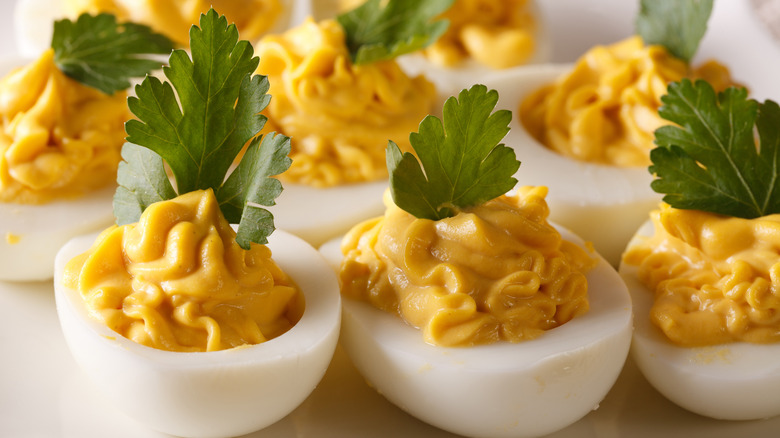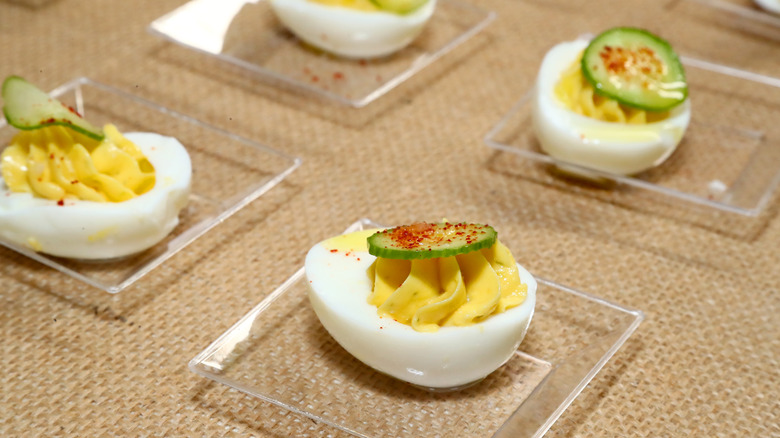How Far In Advance Can You Make Deviled Eggs?
Deviled eggs are an enduring favorite, a dish that is equally at home at a casual potluck or on the small plate menu of a trendy restaurant (via Eater).
They are also a beloved appetizer that can be made in advance of a party. Less time in the kitchen means more time with your guests! But party-planners be warned. You don't want to make deviled eggs too far in advance.
Carolina Coops shares that eggshells are porous but they come with a natural protective coating — called a bloom — that keeps bacteria from compromising the egg. Since the bloom keeps eggs fresh, ones direct from the hen shouldn't be washed and they don't need to be refrigerated. However, commercial eggs are rinsed, partly to make them more attractive for sale (per Better Hens and Gardens). Most commercial egg producers spray a mineral oil on the eggs prior to packaging to replace the bloom.
Of course, hard boiling eggs removes the protective coating of mineral oil. Even kept in the fridge, per Yahoo, cooked eggs don't last as long as uncooked ones. The USDA recommends keeping hard boiled eggs no more than seven days. The government agency further advises that the cooked eggs should be kept at room temperature no more than two hours to curb dangerous bacteria growth.
Because deviled eggs contain mayo and other ingredients prone to spoilage — like crème fraiche or even truffles — Yahoo recommends consuming within four days.
Why you shouldn't make deviled eggs too far in advance
Apart from bacteria growth, making deviled eggs too far in advance can compromise both the texture and flavor, according to Kitchn. Tomas Bohm, chef and owner of the beloved Little Rock eateries The Pantry and The Pantry Crest, concurs, telling Huffington Post that the longer pre-made deviled eggs sit, the more likely they are to dry out and lose flavor. He even references the unpleasant crust that covers the hors d'oeuvre if prepped too early.
To ensure that the first bite of a pre-made deviled egg is as delicious as popping a fresh one in your mouth, there are precautions you can take. The Pioneer Woman recommends keeping the yolk mixture separate from the egg white halves until you are ready to serve. Egg whites can go in an airtight container while the yolks should go in a resealable bag. When it's time to serve, plate the whites. Then, as if you were piping frosting, cut the bag at a corner and squeeze the filling into the hollows. Keep cold until ready to serve.
Kitchn says you can boil the eggs up to seven days in advance as long as they remain uncut; slice and prep the yolk mixture no more than two days ahead.
Whether you make them a few days or a few hours in advance, one thing is certain: The beloved appetizer won't last long on the serving plate.

